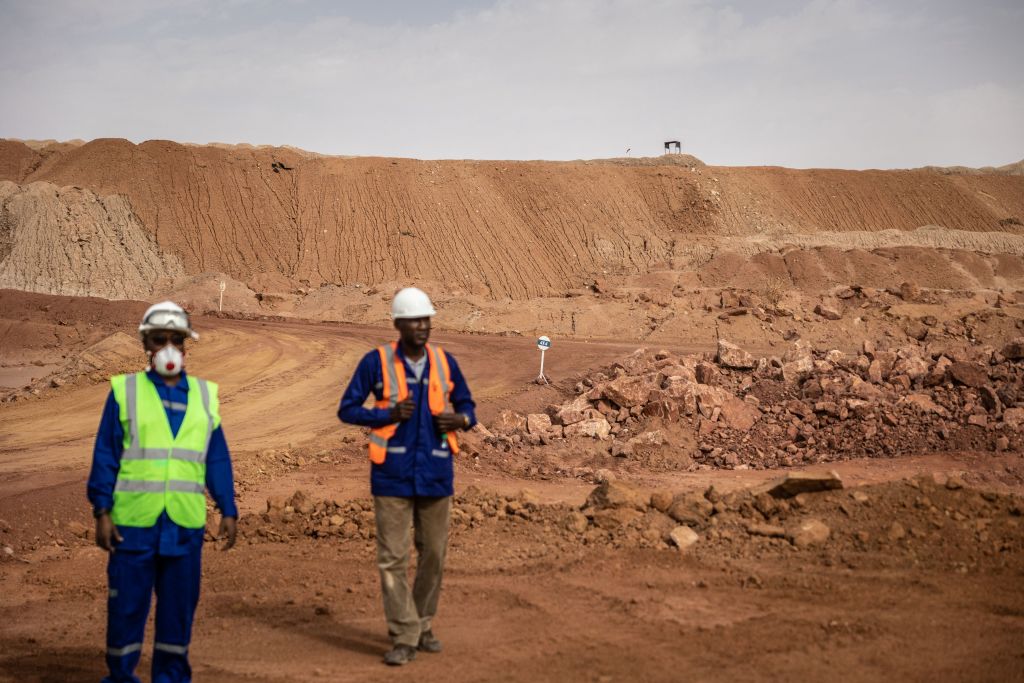Niger-Iran Uranium Deal Raises Fears of Nuclear Proliferation
ADF STAFF
As Niger tries to address a cratering economy and constant terror attacks, its ruling junta is turning to a new ally with a dangerous request.
Iran has been working secretly on a deal with Niger’s ruling junta to buy 300 metric tons of uranium ore worth more than $56 million. According to analysts, the uranium could be funneled into Iran’s ongoing effort to develop a nuclear weapon.
In exchange for the “yellowcake” uranium ore, Iran has promised the Nigerien junta economic aid, agricultural assistance and weapons, including drones and surface-to-air missiles, according to observers.
The deal has been in the works even though Nigerien ore exports have been blocked since the July 2023 coup that overthrew President Mohamed Bazoum.
In its most recent quarterly report, the International Atomic Energy Agency estimated that Iran has more than 5,700 kilograms of 60% enriched uranium that could be converted rapidly to weapons-grade material.
“Iran would only need a couple of weeks to produce that weapons-grade material, but probably much longer — a year or more — to build an actual bomb it could deliver,” Eric Brewer, deputy vice president of the Washington-based Nuclear Threat Initiative, told The Associated Press.
According to the agency, Iran’s current quantity of enriched uranium could make multiple bombs.
Iranian officials approached the Niger junta in August 2023, about one month after the July 2023 coup. The visit was the first step toward circumventing international sanctions aimed at preventing Iran from developing a bomb.
In June 2024, Niger’s junta evicted French company Orano from the Imouraren uranium mine in the northeast. Orano is 90% controlled by the French government. Imouraren is considered to be one of the world’s largest uranium deposits and Niger is the world’s seventh-largest uranium producer.
The junta ended military cooperation with France in December 2023 and began looking for allies who would not make demands about good governance or democracy.
“The Nigerien junta is likely seeking military support or near-term access to revenue to bolster its counterinsurgency efforts and economy, strengthening its regime security,” analyst Liam Karr wrote recently in a report for the Institute for the Study of War.
Niger has struggled since the 2023 coup. Sanctions, diplomatic disputes and border closings with its West African neighbors, such as Benin, have made it impossible for Niger to export natural resources, including oil. As a result, the junta has been forced to cut its budget by 40% and has defaulted on $519 million in international debt payments. The World Bank expects Niger’s economic growth in 2024 to be 45% less than it was in the pre-coup period.
Inflation and insecurity are on the rise.
“The junta has sought to exchange Nigerien natural resources for loans and weapons to help address these challenges,” Karr noted in his report. Iran has joined Russia in offering the junta quick cash to help solve its economic and security problems. Russian officials have approached Niger about taking over operations of the Imouraren mine.
As Niger negotiates with Iran over uranium sales, the junta faces a growing threat from anti-coup movements within the county and from insurgents along its western border with Burkina Faso. The result is a junta increasingly driven to desperation for cash and weapons to maintain its hold on power.
“These challengers foment insecurity and undermine the junta’s legitimacy by showing the ineffectiveness of the junta and security forces,” Karr wrote.


Comments are closed.